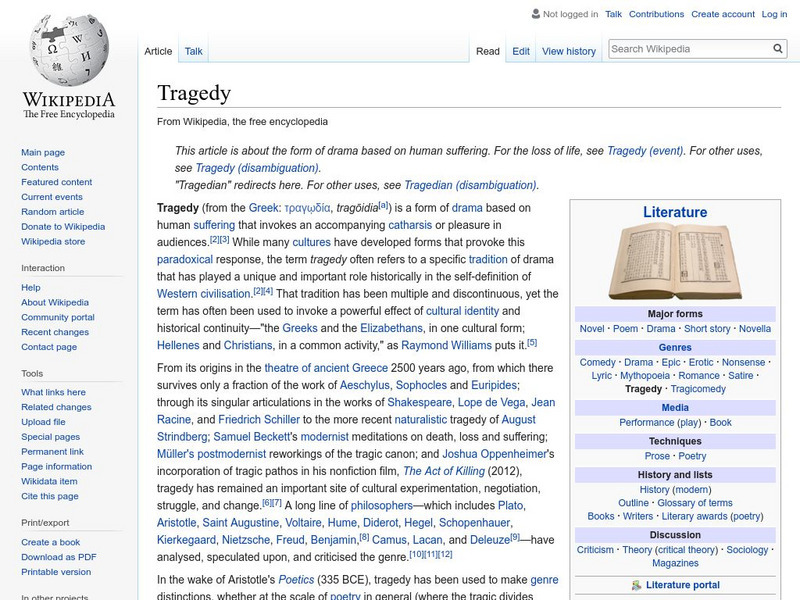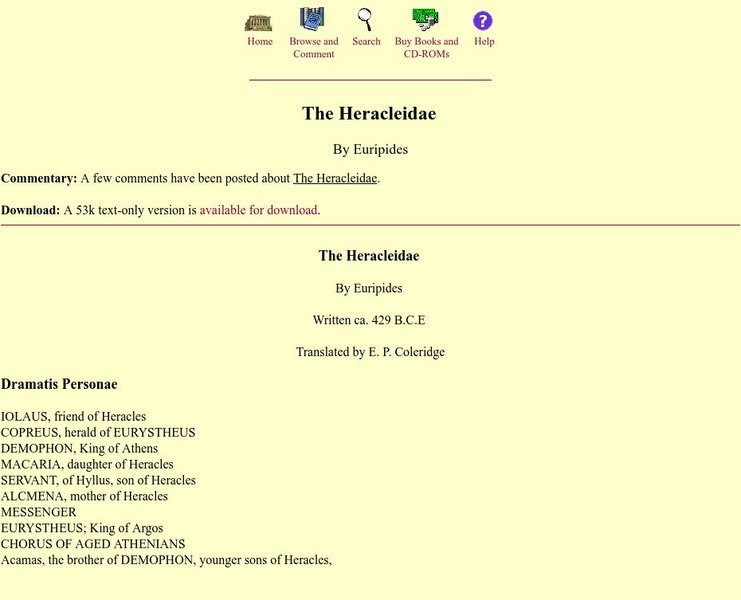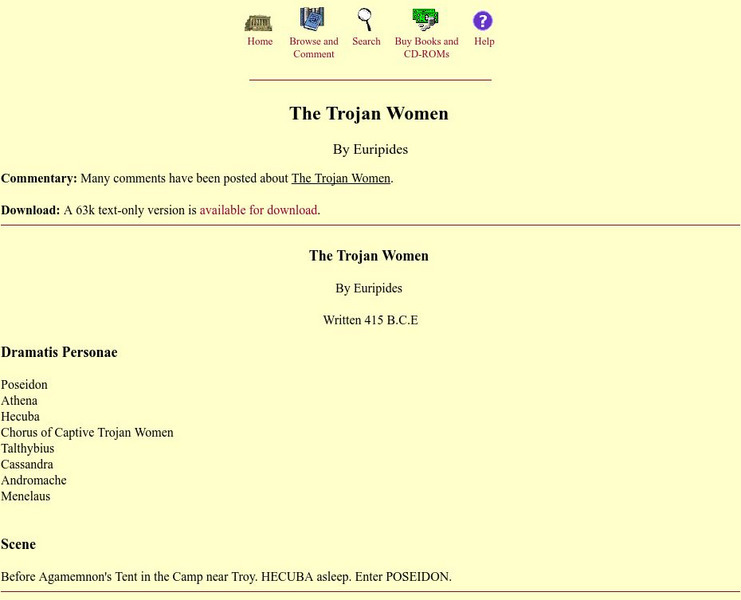Massachusetts Institute of Technology
Mit: Internet Classics Archive: Agamemnon, by Aeschylus
Aeschylus' famous play, Agamemnon, was written in 458 BCE. The full text available here provides an important perspective on the figure of Agmamemnon in ancient Greek culture.
Wikimedia
Wikipedia: Tragedy
This encyclopedia entry from Wikipedia about tragedies discusses its Greek origins; the typical characteristics of a tragedy; and lists some examples of ancient Greek, Roman, English, and modern-day writers of tragedies.
Other
Childdrama: Creative Drama Lesson Plans
Many lesson plans with ideas for teachers and learners, sorted by age and by type! Wonderful for thematic approaches.
Massachusetts Institute of Technology
Mit: Internet Classics Archive: The Heracleidae by Euripides
The whole play is available here from MIT's Internet Classic Archive.
Massachusetts Institute of Technology
Mit: Internet Classics Archive: Orestes by Euirpides
The Internet Classics Archive offers this full text version this story of revenge and the triumph of reason.
University of Adelaide
University of Adelaide: Hippolytus by Euripides
The text of Euripides' ancient play, Hippolytus, is offered at this clearly formatted site.
Other
Sophocles: The Man and His Plays
In addition to the usual biographical material and links to English translations of his plays, this includes a long discussion of "Oedipus the King," Sophocles' most famous work.
Massachusetts Institute of Technology
Mit: Internet Classics Archive: The Persians by Aeschylus
This MIT Internet Classics Archives page is a translation of "The Persians" in an easy-to-read format, maintaining the verse format of the original.
Massachusetts Institute of Technology
Mit: Internet Classics Archive: The Trojan Women
This site is provided for by the Internet Classics Archive. Read the play, "The Trojan Women" in English, plus read and/or add comments, download the play, check out related websites, or recommend a related website.
New York University
Time Space in Classical Greece: The Poetics
A discussion of the beginnings of tragedy and the six necessary components of tragedy. Includes Aristotle's thoughts on tragedies.











